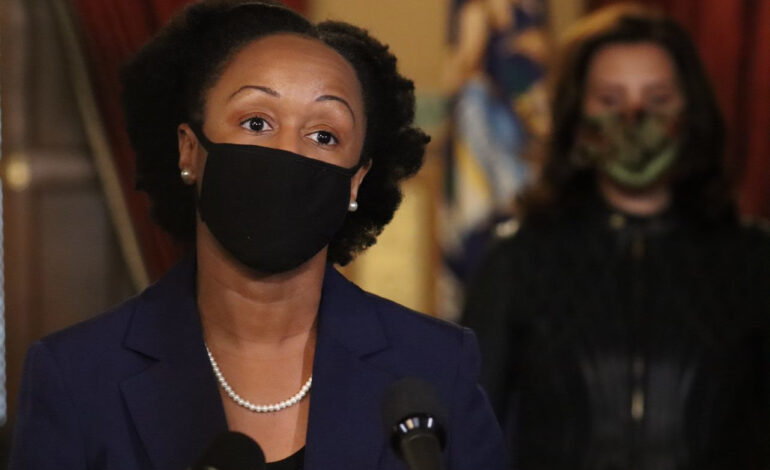LANSING — During Tuesday’s COVID-19 press conference, Dr. Joneigh Khladun gave more insight into the state’s plans of vaccine distribution.
With Pfizer and Moderna both having vaccines in clinical trial stages, Khaldun said that health experts are expecting a vaccine decision from the FDA and CDC to be made by mid-December.
Due to the vaccines having different storage requirements, distribution will depend on which vaccine gets approval.
Pfizer’s vaccine needs to be stored at a temperature of -70C and only 48 hospitals and 12 health departments across the state have storage capabilities for that temperature requirement.
If Moderna’s vaccine is approved, more than 100 hospitals and health departments have capabilities of storage and administration of that vaccine.
Khaldun said that the state is currently working with all sites to ensure they have what is necessary to begin storing and administering the vaccine once available.
Both vaccines require two doses to be administered several weeks apart to provide immunity.
“Initial data shows that both of these vaccines are about 95 percent effective,” Khaldun said. “And it will be important we can vaccinate as many people as possible.”
Due to limited quantities being made available, Khaldun said that the state is also waiting to confirm from the CDC how many doses the state will receive in the first allocation.
“Because there will be such a limited amount in the beginning,” she said, “our first priority will be to keep our healthcare systems operating and to protect those who are the most vulnerable.”
The state would prioritize vaccinating ICU workers, hospital medical floor workers, EMS workers and ER workers in the first allocation.
With the second allotment, which Khaldun said she hopes to come in January, the state would then prioritize vaccinating care facility workers and residents of skilled nursing facilities.
“All of this is dependent on how quickly additional vaccines become available from the manufacturer,” Khaldun said. “Per CDC recommendations — and, again, depending on the supply of the vaccine — we will continue to expand to other types of critical healthcare workers. That includes essential workers, which includes educators, also those who are at the highest risk of severe illness due to COVID-19, and then eventually to the general public. We hope to be able to have vaccines available to the general public by late spring.”






Leave a Reply